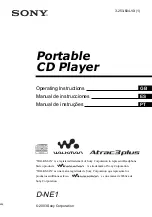
The Audio Tab
79
High Pass
The High Pass filter removes all frequencies at or below the given value in kHz. Like the Low
Pass filter, this filter gets its name from the fact that high frequencies (above the given value)
pass through the filter unaltered.
This filter is generally used to eliminate specific low frequencies associated with background
noise, such as the low rumble of ventilation systems. To use this filter, specify the frequency (in
Hz) below which you want the signal to be silent.
Note:
The Notch filter is often a better choice than High Pass if you know the frequency at which
the unwanted noise is occurring. The Notch filter enables you to selectively target a specific
frequency without removing all the frequencies below it.
If set too high, the High Pass filter can make the audio sound tinny as it removes too many of
the low (bass) frequencies from a source.
Noise Removal
Unwanted noise is common in recorded audio signals. Noise is often inadvertently added to
the signal during the actual recording (camera noise, hard drive noise, fluorescent light hum)
and during capture (line noise from low-quality capture hardware).
You may not notice minor noise in your signal, but even minor audio noise degrades encoding
and should be removed. To help remove common types of audio noise, Cleaner provides an
Adaptive Noise Removal filter. This filter removes random white noise, such as hiss and
general static, as well as more structured colored noise, such as power line noise, ventilation
system hum and hard drive noise.
The Noise Removal filter works well for many types of noise, including line noise. However, if
only line noise is present, try the Notch filter first because it removes only a specific frequency
without altering any other parts of the audio.
For most material, using one of the presets is a good solution. With very noisy or difficult source
material, the Custom option may be helpful. More difficult material may also benefit from the
additional use of the High Pass, Low Pass, Notch and Noise Gate filters.
Noise Removal Custom Setting
The Noise Removal filter > Custom option enables you to specify the threshold at which the
filter operates. The higher the number chosen, the more pronounced the effect on the audio.
Using high amounts of noise reduction can introduce warbling artifacts into the audio track.
High noise-reduction levels may also reduce the overall volume of the signal, so you may want
to boost the volume when using higher settings.
Summary of Contents for 64006-051108-9001 - Discreet Cleaner - Mac
Page 1: ...from discreet November 2000 ...
Page 8: ...Contents viii ...
Page 16: ...Chapter 1 Introduction 8 ...
Page 24: ...Chapter 2 Capture 16 ...
Page 54: ...Chapter 4 Projects 46 ...
Page 68: ...Chapter 5 Settings 60 ...
Page 148: ...Chapter 7 Formats 140 ...
Page 160: ...Chapter 8 Encoding 152 ...
Page 220: ...Chapter 8 Encoding 212 ...
Page 248: ...Chapter 11 Workflow 240 ...
Page 254: ...Chapter 12 Troubleshooting 246 ...
Page 284: ...Glossary 276 ...
















































